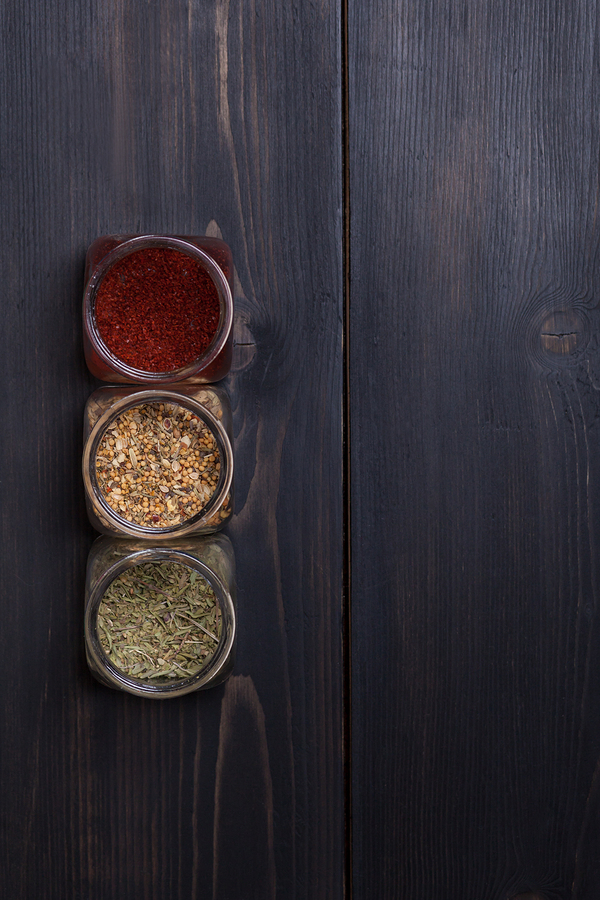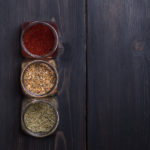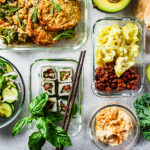By David Blyweiss, M.D., Advanced Natural Wellness
September 21, 2016
- Stop cancer before it starts
- Asian spice kills cancer cells
- 2 more spices to up your odds against cancer
If you’re counting on medical science to protect you against cancer, you’re on the wrong track.
Sure. Over the years we’ve gotten much better at increasing survivorship of patients who are stricken with this deadly disease. However, we’re still no closer to developing a drug to cure it. And there is no vaccine or medication that helps prevent it.
In the meantime, the majority of cancers are caused by lifestyle factors. In fact, only about 5% of cancers are hereditary. This means your best bet at side-stepping cancer is to avoid it in the first place.
Now, smoking and diet are two of the largest factors when it comes to cancer risk. The amount of exercise you get and your weight also play a role.
So offsetting these risks makes perfect sense. Don’t smoke. Get your daily exercise in. And eat a healthy Mediterranean style diet that zeroes in on plenty of fresh, organic fruits and vegetables. These lifestyle factors affect something called your epigenome. They turn on/turn off switches on your genes that either help increase or decrease chance of cancer.
For even more cancer-fighting power, head to your spice rack. What we use to think only spiced up your foods, is now taking the spotlight in enhancing health and longevity. You probably already have several spices hiding there that kill cancer cells before they have a chance to gain a foothold.
Asian Spice Kills Cancer Cells
When I was a kid, my grandmother had the perfect remedy for an upset stomach or nausea. She’d stir up a concoction of hot water, honey, lemon and ginger and have me back on my feet in no time.
Back in those days, I had no idea that ginger had other curative powers – let alone that it holds anti-cancer properties.
Interestingly, the majority of research has been done on ginger’s ability to protect against gastrointestinal types of cancer. It’s shown to be effective in cutting the risk of gastric cancers, pancreatic cancer, liver cancer and colon cancer.
The power behind it appears to be the antioxidant and anti-inflammatory powers. For example, in patients with a high risk of colon cancer, just 2 grams of ginger daily for 28 days can reduce the spread of potential cancer cells… even kill them off.
It also helps suppress the spread of cells in other cancers, like those of the skin, ovaries, breast, prostate and brain.
Are You Suffering From...
- Love handles and a pot belly
- Romance that isn't what it used to
- Forgetfulness and inattention
- Low (or no) strength and endurance
- A sex drive that's shifted into neutral...or worse
If so...you may have Mature Male Burnout. Click here to discover more about this unique condition and what you can do about it.
2 More Spices to Up Your Odds against Cancer
Turmeric is another spice that’s well-known for its anti-cancer and massive anti-inlfammatory properties. This is the orange spice that you find in curry. And it works in three ways to slash your risk of many different forms of cancer… breast, prostate, bowel, stomach and more.
First, it can prevent precancerous cells from turning into full-blown cancer. Second, turmeric appears to actually kill cancer cells. And third, it can stop more cancer cells from growing.
It’s safe to take up to 10 grams daily of this spice from food or supplement sources. Best to take in divided doses throughout the day.
I also like garlic when it comes to cancer prevention. This “stinking rose” contains something called allium. These compounds increase the activity of immune cells that fight cancer. They also help break down cancer-causing substances.
Eating just 3.5 grams of raw (just remember to slice it first and wait around ten minutes before eating) or cooked garlic weekly can cut your risk of stomach cancer in half, and cut your chances of colon cancer by about two-thirds.
In addition to these spices, you’ll find all sorts of other cancer-fighting foods in your kitchen. Grapes, red wine, green tea, fruits, tomatoes, olive oil and cruciferous vegetables (like broccoli, kale, cauliflower) all contain compounds that can inhibit tumor growth and suppress the formation of cancer-spreading blood vessels.
Don’t wait for cancer to strike! Enjoy a healthy diet and lifestyle now to slash your risk of getting it in the first place.
SOURCES:
Prasad S, et al. Ginger and Its Constituents: Role in Prevention and Treatment of Gastrointestinal Cancer. Gastroenterol Res Pract. 2015; 2015: 142979.
Gupta S, et al. Therapeutic Roles of Curcumin: Lessons Learned from Clinical Trials. AAPS J. 2013 Jan; 15(1): 195–218.
Aggarwal BB, et al. Anticancer potential of curcumin: preclinical and clinical studies. Anticancer Res. 2003 Jan-Feb;23(1A):363-98.
Fleischauer AT, et al. Garlic consumption and cancer prevention: meta-analyses of colorectal and stomach cancers. Am J Clin Nutr. 2000 Oct;72(4):1047-52.







